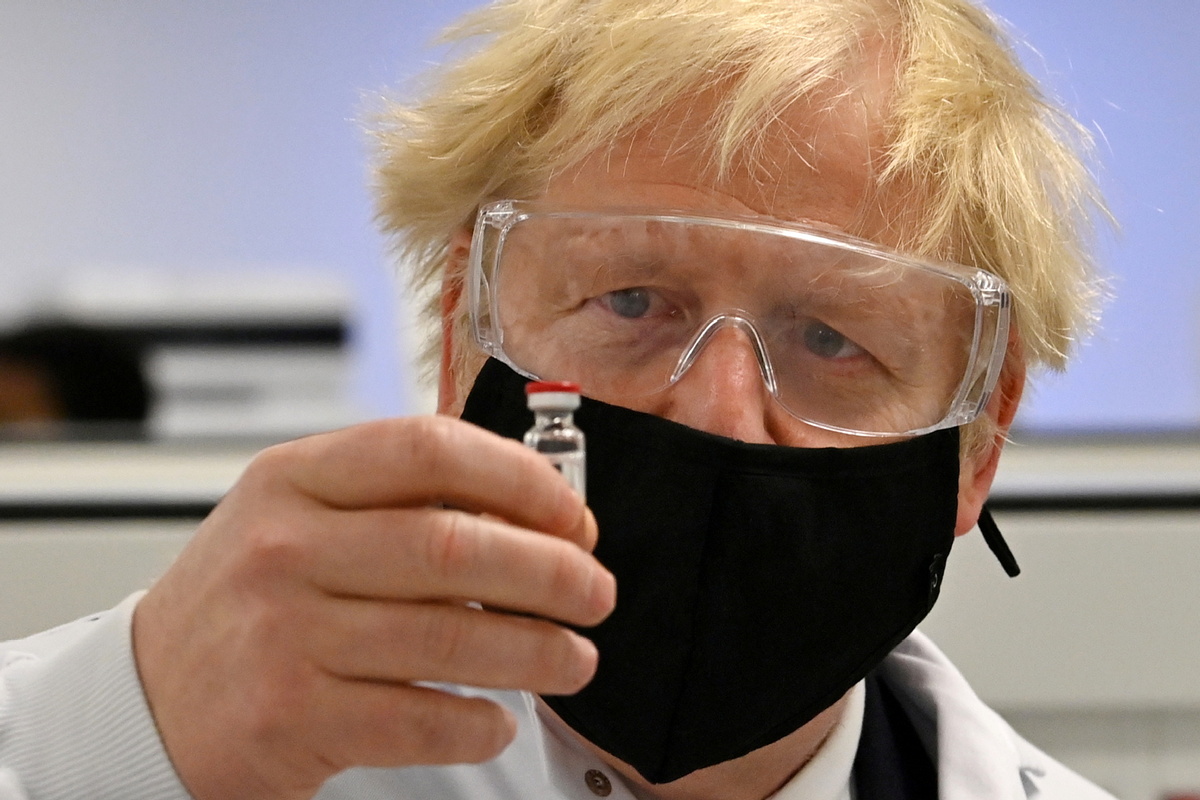UK set to give green light to Oxford vaccine


Early roll-out of such domestically made products offers hope in COVID-19 fight
The United Kingdom is likely to approve its main homegrown novel coronavirus vaccine this week, according to ITV News.
The broadcaster claims the Oxford/AstraZeneca vaccine has satisfied the nation's regulator-the Medicines and Healthcare products Regulatory Agency-and could be in use by Jan 4.
The government has already ordered 100 million doses.
Shehab Khan, a political reporter at ITV News, said the jab is seen as more accessible than the Pfizer/BioNTech vaccine, which has already been approved in the UK and administered to more than 600,000 people.
"Those in government I've spoken to are particularly excited by the Oxford/Astra Zeneca vaccine as it can be stored at fridge temperature, making it easier to transport," Khan said.
The Pfizer/BioNTech vaccine requires ultra-low temperatures, making it difficult to transport.
During trials, the Oxford vaccine had an efficacy rate of up to 90 percent, while the Pfizer vaccine had one of 95 percent.
Pascal Soriot, chief executive of AstraZeneca, told the Sunday Times: "We think we have figured out the winning formula and how to get efficacy that, after two doses, is up there with everybody else."
Andrew Pollard, a professor and chief investigator for the Oxford vaccine, said on BBC Radio 4's Today program: "There's been an enormous amount of work going between the suppliers of vaccines-in our case AstraZeneca-and government, to make sure that all of that pipeline is managed hour-byhour to make sure that the distribution can happen."
The need for another vaccine became more apparent on the weekend as a variant of the novel coronavirus that is far easier to catch continued to spread quickly in the UK.
Chancellor of the Exchequer Rishi Sunak said vaccines offer hope that things will soon improve.
"The early roll-out of vaccines, and the incredible work of our scientists and NHS, means we can now see light at the end of the tunnel with this pandemic," he said.
But the BBC noted on Monday that many hospitals, especially in the hard-hit South, have seen a sharp rise in COVID-19 cases. The London Ambulance Service said Saturday was one of its busiest days ever, with teams responding to 7,918 emergency calls, which was 2,500 more than the same day last year.
Katherine Henderson, a doctor from the Royal College of Emergency Medicine, added that she saw "wall to wall COVID" at a hospital she was working in during the weekend.
"The chances are that we will cope but we cope at a cost," she said on the BBC's morning news program Breakfast. "The cost is not doing what we had hoped, which is being able to keep non-COVID activities going."
Around 22,000 people were in hospital with COVID-19 during the Christmas period.
A strict lockdown has been imposed over much of the UK in response to the new variant.
The Guardian newspaper has reported that the new lockdowns imposed in an attempt to slow the variant's spread have led to a worsening prediction about the economy.
The Resolution Foundation think tank told the paper the lockdowns will lead to 4.3 percent growth in 2021 as opposed to the Office for Budget Responsibility's earlier prediction of 5.5 percent.
Torsten Bell, the think tank's chief executive, said: "Efforts to contain the new strain of COVID-19 mean that the first few months of 2021 will, if anything, require tougher lockdowns… 2021 offers light at the end of the tunnel, but it's going to be a bumpy ride getting there."
The Financial Times said lateral fl ow tests will be part of that recovery.
The on-the-spot rapid COVID-19 tests are a new technology in which the UK government has invested more than 1.5 billion pounds ($2.02 billion). They have already been provided to local authorities, care homes, hospitals, schools, and universities and are now being made available to the wider public.
They give a result in 20 minutes and can identify asymptomatic carriers.
John Bell, a professor of medicine at Oxford University, told the paper: "Testing asymptomatic people is an enormous priority… Every successful positive you get is a win."
Meanwhile, one of the UK's top psychiatrists has warned the pandemic poses the biggest threat to mental health since World War II.
Adrian James, president of the Royal College of Psychiatrists, told the Guardian newspaper mental health will remain harmed, long after the pandemic is over.
"It doesn't stop when the virus is under control and there are few people in hospital," he said. "You've got to fund the long-term consequences."
































